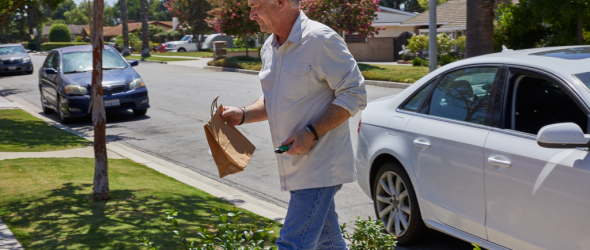For the first time, people in Colorado will be able to legally have marijuana products delivered directly to their homes starting on Friday.
The launch of the limited program focused on medical cannabis patients comes one week after the dispensary chain Native Roots announced that its Boulder location The Dandelion had received the state’s first marijuana delivery license. And while the license wasn’t related to the coronavirus outbreak, the timing is opportune, as officials have increasingly cautioned against leaving home to avoid catching or spreading the virus.
The delivery service will be limited to patients living in either Boulder or Superior. They must also be registered with the dispensary, and those who are not already signed up must do so in-person for the time being—though Native Roots said it is “looking into a compliant, remote solution for patient registration.”
Native Roots said there is a $100 minimum purchase, and they’re encouraging patients to pay with a debit card rather than cash, presumably because drivers could be targets of burglaries if they’re transporting large amounts of cash or because of concerns that money changing hands could further the spread of COVID-19.
Cannabis delivery services are a new feature of Colorado’s legal marijuana program. Gov. Jared Polis (D) signed legislation last year allowing the option, though individuals jurisdictions must proactively opt-in, so as of now that number of cities permitting deliveries is limited. Native Roots said it’s been engaging with local governments about the issue for months.
Deliveries for recreational cannabis consumers won’t begin until January 2021 under the law.
As more businesses shutter as a result of the pandemic, there’s growing demand for alternative means of obtaining marijuana products, and several states have taken steps to address that concern by encouraging deliveries and curbside pickup, for example.
For patients and reform advocates, that represents an ideal solution compared to closing dispensaries altogether. Numerous legal states have categorized cannabis shops as essential services that are exempt from mandates to close down. And according to a poll released this week, a majority of Americans agree with that decision.
But while the market remains largely operational in the midst of this health crisis, reform advocates across the U.S. are feeling the impact and struggling to continue campaign activities, including in-person signature gathering.
Campaigns to change state marijuana programs, legalize psilocybin mushrooms, legalize psilocybin for therapeutic purposes, legalize medical and recreational cannabis, decriminalize psychedelics and broadly decriminalize drug possession have all faced challenges amid the pandemic, and several have implored officials to allow electronic signature gathering to overcome the barrier.
An exception to this appears to be Arizona, where activists recently said they’ve collected more than enough signatures at this point to qualify for the state’s November ballot.
Featured image by Gina Coleman/Weedmaps
This article has been republished from Marijuana Moment under a content-sharing agreement. Read the original article here.


